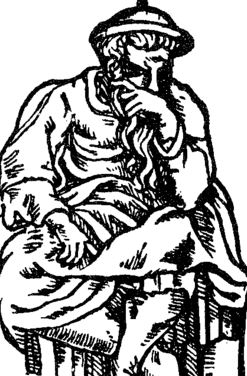The Greatest Rabbi of All Time?

An illustration of Rabbi Akiva in the 16th century Mantua Haggadah
Akiva ben Yosef (d. 135 CE) was born in Israel to a poor family in the last years of the Second Temple, possibly the grandson of converts to Judaism. Despite being unlearned and impoverished, he fell in love with Rachel, the daughter of one of Jerusalem’s wealthiest men (and his employer). Rachel agreed to marry Akiva on the condition that he would eventually go to study. Her father rejected her choice, and the couple lived in extreme poverty. Finally, aged 40, Akiva enrolled at the yeshiva of Lod, without even knowing the Hebrew alphabet. He returned home only twelve years later, but upon nearing the door of his home, overheard his wife say to a neighbour that if it were up to her, her husband would study for another twelve years. Akiva thus went back to Lod for another dozen years, by the end of which he had become a renowned rabbi with some 24,000 students. This time, he returned home to a huge procession and an adoring crowd. His wife tried to get through and was blocked by his students. Rabbi Akiva famously told them: “Leave her alone, for what is mine and yours, is hers.” His father-in-law recognized the huge mistake he had made, and ended up leaving his fortune to the sage. Rabbi Akiva is credited with setting the foundations of Judaism as we know it. He completed the codification of the Tanakh, and commissioned Aquila of Sinope to produce a new accurate translation of the Torah into Greek – an indispensable tool for the Jewish majority at the time. He helped to quell a number of heretical movements, and ensured the survival of traditional Judaism in the face of the new Christian sect. Some even see him as one of the earliest feminists: it was Rabbi Akiva that banned the practice of separating women from society during their days of menstruation. He also spearheaded the abolition of both slavery and capital punishment in Israel. Rabbi Akiva taught that the most important Torah principle was loving your fellow, and unraveled new techniques in Torah interpretation. (One legend has it that God showed Moses a vision of Rabbi Akiva’s future classroom, and it was so deep that Moses did not understand any of it and began to cry!) Rabbi Akiva also participated in the Bar Kochva Revolt in an attempt to re-establish an independent Jewish kingdom and rebuild the Holy Temple. Unfortunately, the revolt failed with catastrophic results. All of Rabbi Akiva’s students perished. The rabbi was able to find five new students and transmit the Torah to them before his own cruel death at the hands of the Romans. This act is sometimes credited with saving Judaism from extinction. One of those five students was Rabbi Shimon bar Yochai, the traditional author of the Zohar, and the first to publicly reveal the vast mystical dimensions of Judaism. (These teachings he learned from Rabbi Akiva, who was such a great mystic himself that the Talmud states he was the only sage to ascend to the Heavens and return to Earth unscathed.) Rabbi Akiva set the stage for the compilation of the Mishnah, and its eventual evolution into the Talmud. His kindness was legendary, as was his love for Israel – both the nation and the land. He died defending both, being flayed with iron combs by the Romans. He prayed until his last breath, which stunned both his executioner and his students, who asked how he was able to praise God at such a moment. His reply: “All my life I was worried about the verse, ‘[to love Him] with all your soul’ …And I said to myself, when will I ever be able to fulfill this command? And now that I am finally able to fulfill it, I should not?” He then recited the Shema, and just as the last word “echad” left his lips, his soul departed his body. Some scholars title him “the father of Rabbinic Judaism”.
Words of the Week
One of the gifts of Jewish culture to Christianity is that it has taught Christians to think like Jews… Any modern man who has not learned to think as though he were a Jew can hardly be said to have learned to think at all.
– Lord William Rees-Mogg

Rabbi Akiva’s Tomb in Tiberias, Israel
